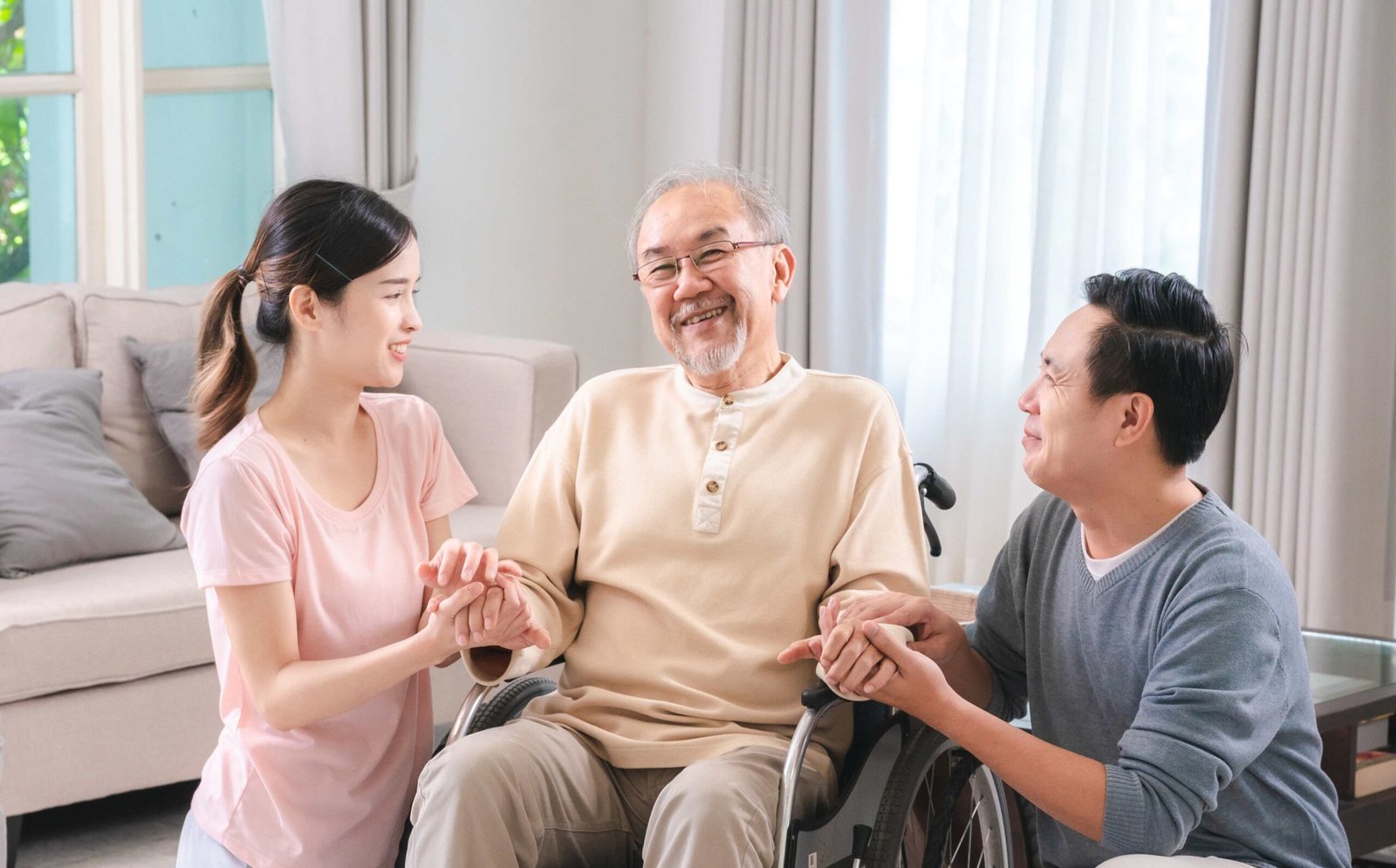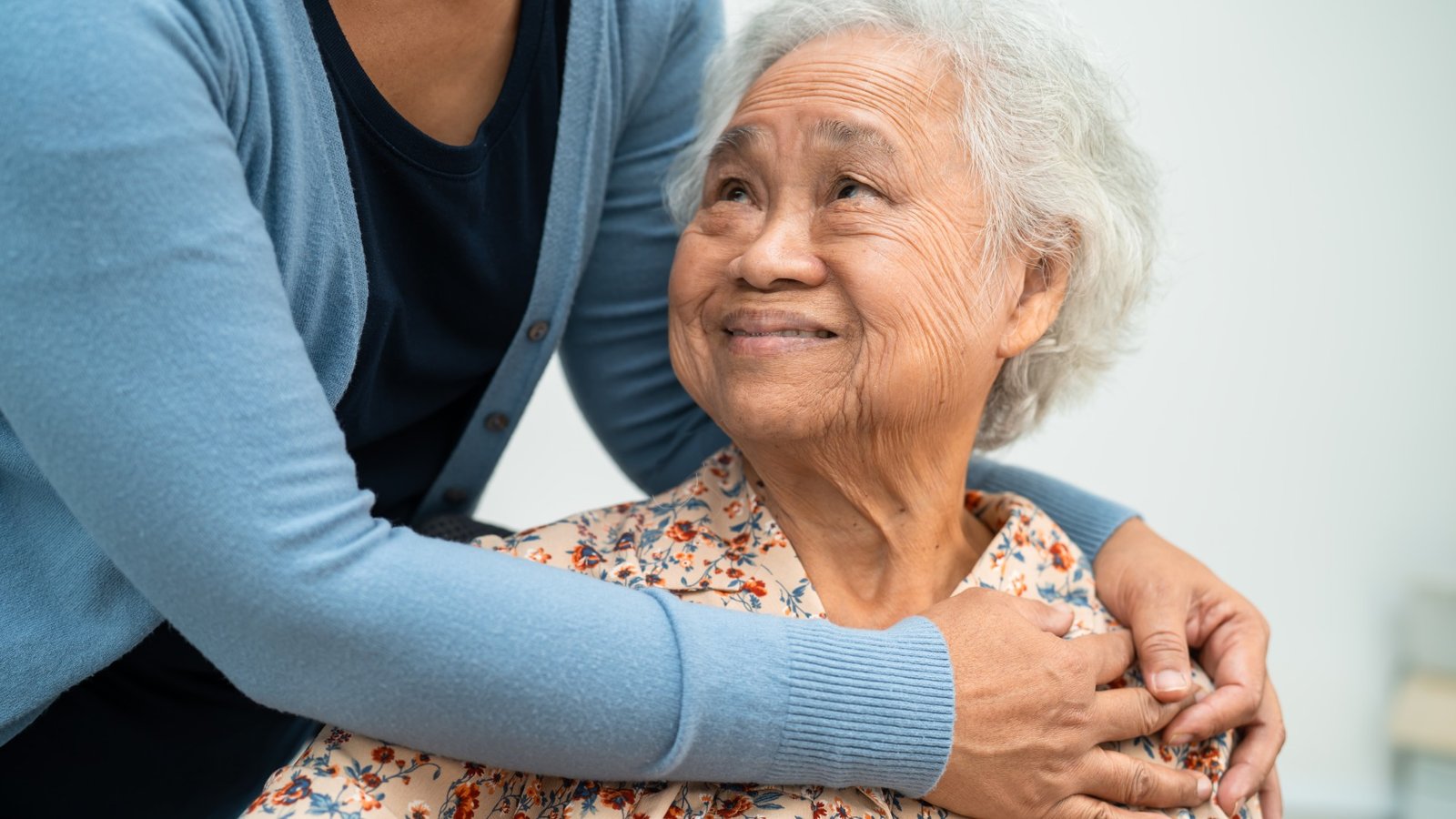Understanding Hospice Care
Hospice care plays a crucial role in supporting individuals with life-limiting illnesses and their families. It focuses on providing compassionate and specialized care to enhance the quality of life during the final stages of an illness. To truly grasp the significance of hospice care, it is important to understand what it entails and the importance of palliative care.
What is Hospice Care?
Hospice care is a specialized form of medical care that aims to provide comfort and support to individuals with terminal illnesses. It focuses on managing pain and symptoms, as well as addressing the emotional, spiritual, and psychosocial needs of patients and their loved ones. Hospice care is typically provided in the patient’s own home, a hospice facility, or a nursing home.
The primary goal of hospice care is to ensure that patients experience the highest possible quality of life during their remaining time. This includes managing pain and other distressing symptoms, promoting dignity and respect, and offering emotional and spiritual support. Hospice care also emphasizes open communication and shared decision-making, allowing patients and their families to actively participate in the care planning process.
Importance of Palliative Care
Palliative care is an essential component of hospice care. It focuses on providing relief from the symptoms and stress associated with a serious illness, regardless of the stage of the disease. Palliative care can be provided concurrently with curative treatments and is not limited to end-of-life care.
The goal of palliative care is to improve the quality of life for patients and their families by addressing physical, emotional, and spiritual needs. It involves a multidisciplinary approach, with a team of healthcare professionals working together to provide comprehensive care. Palliative care aims to alleviate pain, manage symptoms, and enhance overall well-being.
By integrating palliative care into hospice care, patients can receive the necessary support and comfort throughout their illness journey. This holistic approach ensures that patients and their families receive the physical, emotional, and spiritual care they need, promoting a sense of peace and dignity.
Understanding hospice care and the importance of palliative care is vital for individuals seeking specialized care for themselves or their loved ones. Embracing hospice and palliative care can provide comfort, support, and a higher quality of life during challenging times.
The Role of Community Outreach
Community outreach plays a vital role in expanding access to hospice care and educating the public about the benefits of palliative care. By actively engaging with the community, hospice organizations like Serenity Hospice in Simi Valley, CA, can raise awareness, provide support, and ensure that individuals in need receive the compassionate care they deserve.
Definition and Purpose of Community Outreach
Community outreach refers to the efforts made by hospice organizations to connect with the local community and provide valuable information about hospice care and palliative services. The purpose of community outreach is to educate, raise awareness, and address any misconceptions surrounding end-of-life care. It involves reaching out to individuals, families, healthcare professionals, and community groups to provide information, resources, and support.
Through community outreach, hospice organizations aim to:
- Educate the public about the benefits of hospice and palliative care
- Promote a better understanding of end-of-life care options
- Dispel myths and misconceptions surrounding hospice care
- Provide resources and support for patients, families, and caregivers
- Foster partnerships with healthcare providers and community organizations
- Enhance access to hospice services for underserved populations
Benefits of Community Outreach in Hospice Care
Community outreach initiatives have numerous benefits for both the hospice organization and the community it serves. By actively engaging with the community, hospice organizations like Serenity Hospice can:
- Raise awareness: Community outreach programs help in raising awareness about hospice care and palliative services, ensuring that individuals know their options when it comes to end-of-life care.
- Provide education: By offering educational workshops, seminars, and informational materials, hospice organizations can disseminate accurate information about hospice care, empowering individuals to make informed decisions.
- Address misconceptions: Community outreach initiatives help dispel common myths and misconceptions surrounding hospice care, reducing fear and anxiety associated with end-of-life care.
- Increase access: By actively engaging with the community, hospice organizations can identify barriers to accessing care and work towards increasing access to hospice services, especially for underserved populations.
- Foster partnerships: Community outreach efforts allow hospice organizations to collaborate with healthcare providers, community organizations, and other stakeholders, fostering partnerships that benefit the entire community.
- Provide support: Through support groups, counseling services, and other outreach initiatives, hospice organizations can provide emotional and practical support to patients, families, and caregivers.
Community outreach serves as a powerful tool in expanding access to hospice care, ensuring that individuals receive the compassionate care they need during their end-of-life journey. Through education, awareness, and support, community outreach initiatives make a positive impact on the quality of life for patients and their loved ones.
Expanding Access to Hospice Care
When it comes to hospice care, ensuring that individuals have access to the support and services they need is of utmost importance. Unfortunately, there are challenges that can hinder access to hospice care, making it crucial to expand outreach efforts and promote education and awareness.
Challenges in Accessing Hospice Care
Accessing hospice care can be challenging for many individuals and their families. Some common barriers include:
- Lack of information: Many people are unaware of what hospice care entails and the benefits it can provide. This lack of knowledge can prevent individuals from seeking hospice care when it could greatly enhance their quality of life.
- Limited availability: In certain areas, there may be a scarcity of hospice care providers, making it difficult for individuals to access the services they need. This is especially true in rural or underserved communities.
- Financial constraints: Hospice care can come with financial implications, and not all individuals have the necessary resources to afford it. This can pose a significant barrier to accessing the care and support that hospice provides.
- Cultural and language barriers: Cultural beliefs and language differences can also create challenges in accessing hospice care. It is important to address these barriers and ensure that individuals from diverse backgrounds have equal access to hospice services.
Importance of Education and Awareness
Education and awareness play a crucial role in expanding access to hospice care. By providing accurate and comprehensive information about hospice services, individuals and their families can make informed decisions about their care options. Some key aspects of education and awareness include:
- Dispelling misconceptions: There are often misconceptions surrounding hospice care, such as the idea that it is only for individuals in the final stages of life. By educating the public about the full range of services and benefits that hospice care provides, these misconceptions can be addressed.
- Promoting early conversations: Encouraging individuals to have conversations about end-of-life care and advance care planning is essential. By discussing their preferences and goals, individuals can make informed decisions about their care and ensure that their wishes are respected.
- Collaborating with healthcare professionals: Collaborating with healthcare professionals, such as primary care physicians and specialists, can enhance education and awareness efforts. By providing information and resources to healthcare providers, they can play an active role in educating their patients about the benefits of hospice care.
- Engaging with the community: Engaging with the community through outreach programs, workshops, and educational seminars can help increase awareness about hospice care. These initiatives can provide valuable information and address any concerns or questions individuals may have.
Expanding access to hospice care requires a multifaceted approach that addresses the challenges individuals face in accessing these services. By promoting education and awareness, individuals can make informed decisions about their care, and barriers to accessing hospice care can be reduced. Ultimately, the goal is to ensure that everyone in need of hospice care can benefit from the compassionate support and services it provides.
Serenity Hospice in Simi Valley, CA
When it comes to hospice care and palliative care services, Serenity Hospice in Simi Valley, CA is a trusted and reputable provider in the community. This section provides an overview of Serenity Hospice and outlines the range of services they offer.
Overview of Serenity Hospice
Serenity Hospice is a leading provider of compassionate end-of-life care in Simi Valley, CA. Their mission is to provide comfort, support, and dignity to patients and their families during the challenging journey of terminal illness. With a team of dedicated professionals, Serenity Hospice strives to enhance the quality of life for patients and ensure their physical, emotional, and spiritual well-being.
Serenity Hospice is committed to upholding the highest standards of care and adheres to the principles of patient-centeredness, compassion, and respect. They understand the unique needs of individuals facing a life-limiting illness and tailor their services to meet those needs effectively.
Services Offered at Serenity Hospice
Serenity Hospice offers a comprehensive range of services designed to provide holistic care to patients and their families. These services aim to address the physical, emotional, and spiritual aspects of the end-of-life journey. Here are some of the key services offered at Serenity Hospice:
| Service | Description |
|---|---|
| Palliative Care | Serenity Hospice provides specialized palliative care to manage pain and symptoms, improve quality of life, and enhance comfort for patients with serious illnesses. |
| Medical Care | Their experienced team of healthcare professionals, including physicians, nurses, and aides, deliver expert medical care to ensure optimal comfort and well-being for patients. |
| Emotional and Spiritual Support | Serenity Hospice offers counseling services and emotional support to patients and their families, helping them navigate the emotional challenges associated with end-of-life care. They also provide spiritual support, respecting individual beliefs and offering guidance during this sensitive time. |
| Medications and Medical Equipment | Serenity Hospice ensures that patients have access to the necessary medications and medical equipment required for their comfort and well-being. They coordinate with pharmacies and suppliers to arrange timely delivery and manage medication regimens effectively. |
| Bereavement Support | After the passing of a loved one, Serenity Hospice provides bereavement support and counseling services to help families cope with grief and loss. They offer individual and group support, as well as educational resources to help individuals navigate the grieving process. |
| Volunteer Services | Serenity Hospice engages dedicated volunteers who provide companionship, emotional support, and assistance to patients and their families. Volunteers play a vital role in enhancing the overall quality of life for patients under hospice care. |
Serenity Hospice takes pride in their commitment to personalized care, ensuring that each patient’s unique needs are met with sensitivity and compassion. Their comprehensive services aim to alleviate suffering, enhance comfort, and support patients and their families through every step of their end-of-life journey.
Community Outreach Initiatives
Serenity Hospice in Simi Valley, CA, is dedicated to expanding access to hospice care and palliative care through various community outreach initiatives. These initiatives aim to educate and support individuals and families in need of end-of-life care.
Educational Workshops and Seminars
One of the key community outreach initiatives offered by Serenity Hospice is the provision of educational workshops and seminars. These events serve as valuable resources for individuals seeking information and guidance on hospice care and palliative care. By attending these workshops and seminars, individuals can gain a deeper understanding of the services and benefits of hospice care, as well as the importance of palliative care.
The workshops and seminars cover a range of topics related to end-of-life care, including pain management, emotional support, and spiritual care. Qualified professionals, such as doctors, nurses, social workers, and counselors, lead these sessions to ensure accurate and up-to-date information is provided.
| Workshop/Seminar Topic | Date | Location |
|---|---|---|
| Introduction to Hospice Care | [Date] | [Location] |
| Managing Pain and Discomfort | [Date] | [Location] |
| Grief and Bereavement Support | [Date] | [Location] |
Support Groups and Counseling Services
Serenity Hospice recognizes the importance of emotional and psychological support for individuals and families facing end-of-life challenges. To address these needs, they offer support groups and counseling services as part of their community outreach initiatives.
Support groups provide a safe and compassionate environment for individuals to share their experiences, concerns, and emotions. These groups offer an opportunity for participants to connect with others who are going through similar situations, fostering a sense of community and understanding. Highly skilled facilitators guide these support groups, ensuring that participants receive the support and encouragement they need.
In addition to support groups, Serenity Hospice also offers counseling services. Qualified counselors are available to provide emotional and psychological support to individuals and families, helping them navigate the complexities of end-of-life care. These counseling sessions offer a confidential space for individuals to express their feelings, cope with loss and grief, and develop strategies for emotional well-being.
Serenity Hospice’s community outreach initiatives, including educational workshops, seminars, support groups, and counseling services, aim to empower individuals and families with the knowledge, resources, and emotional support needed to make informed decisions about hospice care and palliative care. These initiatives are designed to enhance the quality of life for those facing end-of-life challenges and ensure that compassionate care is accessible to all who need it.
Impact and Benefits
Expanding access to hospice care through community outreach initiatives has a profound impact on individuals and their families who are facing end-of-life situations. By increasing awareness and providing education, these efforts lead to improvements in the quality of life and enhance the overall end-of-life care experience.
Improving Quality of Life
One of the significant benefits of community outreach in hospice care is the improvement in the quality of life for patients and their loved ones. Hospice care focuses on providing compassionate and holistic support, addressing physical, emotional, and spiritual needs. Through community outreach initiatives, individuals gain a better understanding of the benefits of hospice care, leading to timely access to the services they need.
| Benefits of Community Outreach in Improving Quality of Life |
|---|
| Increased awareness of hospice care options |
| Timely access to pain and symptom management |
| Emotional and spiritual support for patients and families |
| Enhanced communication and decision-making |
| Improved coordination of care between healthcare providers |
By engaging with the community and spreading awareness about hospice care, individuals can make informed decisions that align with their goals and values. This empowerment enables patients to receive the appropriate care and support needed to enhance their quality of life during their end-of-life journey.
Enhancing End-of-Life Care
Community outreach initiatives play a vital role in enhancing end-of-life care for patients and their families. By providing education and resources, individuals are better equipped to navigate the complexities of hospice care and make informed decisions based on their unique needs and preferences.
| Benefits of Community Outreach in Enhancing End-of-Life Care |
|---|
| Increased access to palliative care services |
| Improved understanding of advance care planning and documentation |
| Enhanced coordination of care across healthcare settings |
| Support for caregivers and family members |
| Promotion of cultural sensitivity and inclusivity |
Through community outreach efforts, individuals gain knowledge about palliative care options, which focus on relieving pain and improving the overall well-being of patients with serious illnesses. Additionally, community outreach helps foster a supportive network for caregivers and family members, ensuring they receive the necessary guidance and resources during this challenging time.
By expanding access to hospice care through community outreach and education, individuals and their families can experience improved quality of life and enhanced end-of-life care. These initiatives create a more compassionate and supportive environment, allowing individuals to navigate their end-of-life journey with dignity and comfort.







